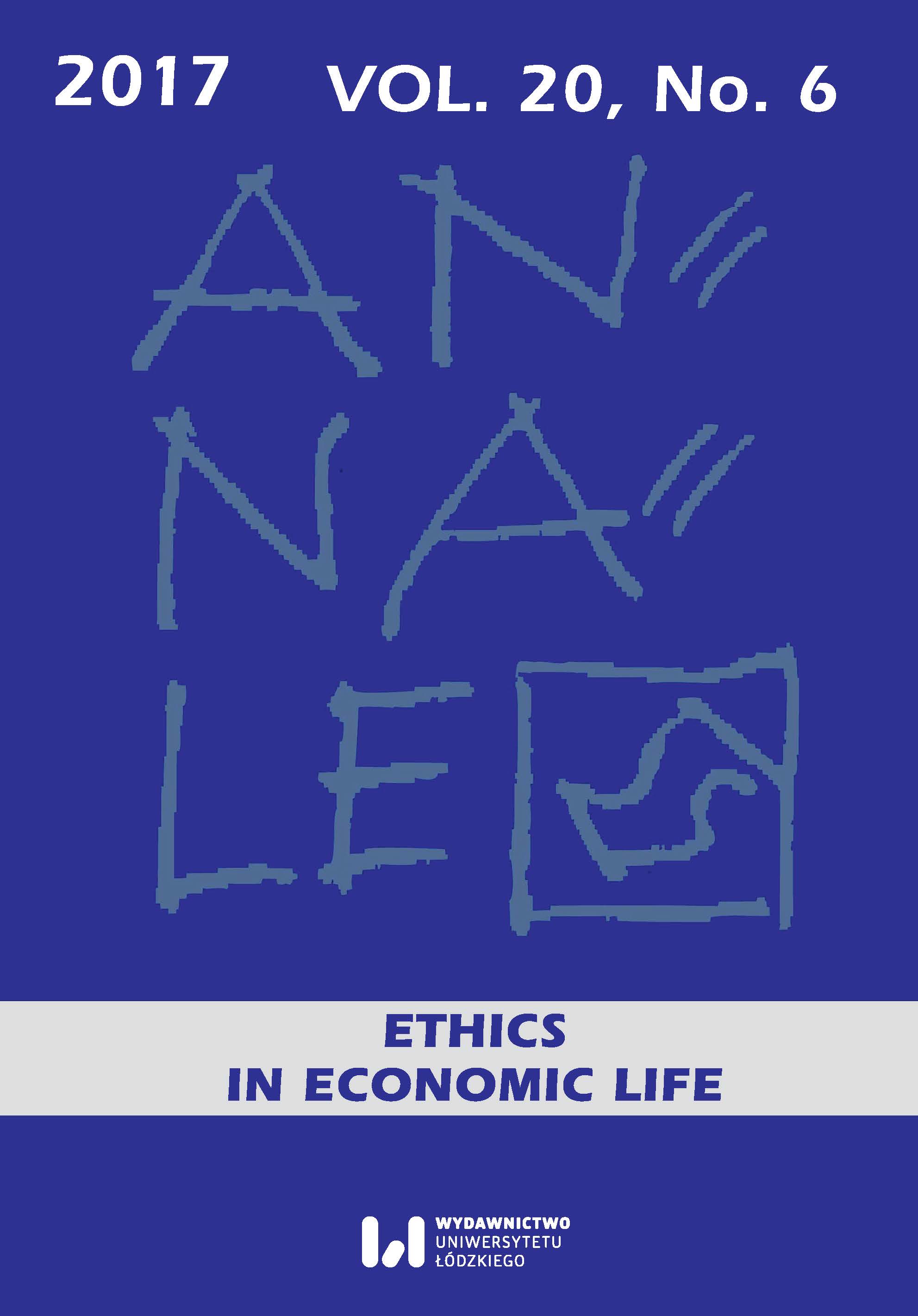Economic process as institutionalization of values Karl Polanyi’s institutional theory and its ethical consequences
Economic process as institutionalization of values Karl Polanyi’s institutional theory and its ethical consequences
Author(s): Maciej KassnerSubject(s): Ethics / Practical Philosophy, Economic history, Business Ethics, Socio-Economic Research
Published by: Wydawnictwo Uniwersytetu Łódzkiego
Keywords: Karl Polanyi; Douglass North; institutionalism; ethics
Summary/Abstract: This article is devoted to a critical reconstruction of Karl Polanyi’s institutional theory and its ethical consequences. Starting with the distinction between the formal (neoclassical) and the substantive (institutional) understanding of the economy, the article proceeds to discuss the main forms of institutional integration of economic life described by Polanyi: reciprocity (symmetry), redistribution (centricity), and exchange (market). In this context, the author examines the connection between the work of Karl Polanyi and the economic anthropology represented by the works of Richard Thurnwald and Bronisław Malinowski. The author argues that three main forms of institutional integration of economic life introduced by Karl Polanyi can be interpreted both as analytical tools to describe institutions and as a grand scheme for the classification of different economic systems. The next section of the article is devoted to a comparison between the institutional theories of Douglass North and Karl Polanyi. For North, the main explanatory category is the idea of transaction costs, whereas for Polanyi the key idea is that of the social embeddedness of the economy. When speaking about the social embeddedness of the economy, Polanyi draws our attention to the inseparable bonds which exist between economic institutions on the one hand, and culture, social structure and politics on the other. This theoretical difference between North and Polanyi, the author argues, has important ethical consequences. If Polanyi is right, then institutions are not only alternative solutions to a certain economic problem (i.e. the efficient allocation of resources, the reduction of transaction costs) but above all they are the embodiment of different conceptions of a good life. In conclusion, the author emphasizes the political dimension of Karl Polanyi’s institutional theory, along with its intriguing promise of liberating our social and political life from the economistic fallacy, that is, from the unfortunate tendency to think about society in market terms.
Journal: Annales. Etyka w Życiu Gospodarczym
- Issue Year: 20/2017
- Issue No: 6
- Page Range: 69-86
- Page Count: 18
- Language: English

